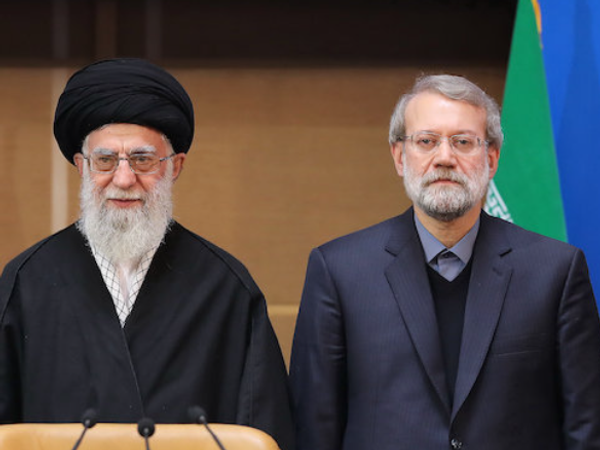One day after suggesting a new nuclear deal with President-elect Donald Trump, a top advisor to Iran's Supreme Leader tweeted that Iran would avoid a nuclear bomb if the US accepted its terms, including payment of compensation.
Ali Larijani wrote that if the Trump administration wants Iran to refrain from making a bomb, "They must accept Iran's conditions and grant necessary concessions, including #compensating_Iran for damages and similar measures, to reach a new agreement, rather than issuing unilateral demands."
The earlier suggestion, also conveyed by Ali Larijani in an interview with Khamenei’s official website on Thursday, suggested Iran pledging not to produce weapons but retaining uranium enrichment capabilities.
Larijani directed both messages squarely at the incoming administration of President-elect Trump, who withdrew from the JCPOA nuclear agreement in 2018.
“You now have only two options: either return to the JCPOA that was already agreed upon … or, if you do not accept it as I have heard that the new US administration has said, then fine. It is not divine revelation. Come and discuss a new deal,” he had said on Thursday.
“You say, ‘We accept a nuclear Iran as long as it does not move toward a bomb!’ Fine. We have enrichment at this level. So, come to an agreement, bearing in mind that Iran has certain conditions for this based on past experiences." he added. "We will not move toward a bomb, and you must accept our conditions. Make a new agreement.”
Larijani said Iran had increased its enrichment to over 60%, a key concern of Western powers but well short of weapons-grade levels. He was speaking before a censure resolution against Iran was passed by the UN nuclear watchdog.
Larijani's new demand for compensation comes as Tehran's regional influence faces significant setbacks, with Hamas’s military infrastructure largely destroyed, Hezbollah under relentless Israeli attacks in Lebanon, and key militant leaders, including Hamas’s Ismail Haniyeh and Hezbollah’s Hassan Nasrallah, killed.
Larijani returns
Khamenei’s decision to entrust Larijani to speak publicly on key diplomatic issues may signal a move to assign the relative moderate a more prominent role in Iran's foreign affairs apparatus.
During two high-profile visits last week to Syria and Lebanon amid Israeli air strikes, Larijani delivered personal messages from Ali Khamenei to key regional players, Syrian President Bashar al-Assad and top Lebanese officials.
A former head of state broadcaster IRIB for a decade up to 2004, Larijani led Iran's Supreme National Security Council until 2008 and then served as speaker of parliament before a relative ebb in his public stature.
Now his bold offer to the Trump administration in an interview with the Supreme Leader's website may suggest a high-level new role for him in the nuclear dossier.
Following Trump's victory in the US presidential election, Iran extended an official invitation to Rafael Grossi, the director-general of the International Atomic Energy Agency, to visit Tehran in a possible renewed bid at diplomacy.
Last Friday, Grossi inspected two of Iran's key nuclear facilities as Tehran signaled its willingness to resume negotiations over its disputed nuclear program in a bid to alleviate sanctions which have dogged the Iranian economy.
With pressure mounting on Tehran following the IAEA’s 35-nation Board of Governors' resolution demanding improved cooperation with the UN nuclear watchdog, the Islamic Republic pledged to activate advanced centrifuges in retaliation.
The resolution, combined with likely revival of the so-called maximum pressure campaign of sanctions on Iran from Trump's first term may set US-led Western countries on a collision course with Tehran over the nuclear dossier.
